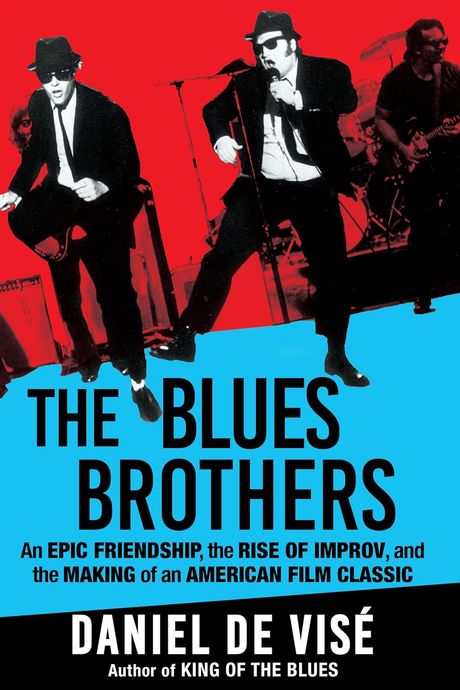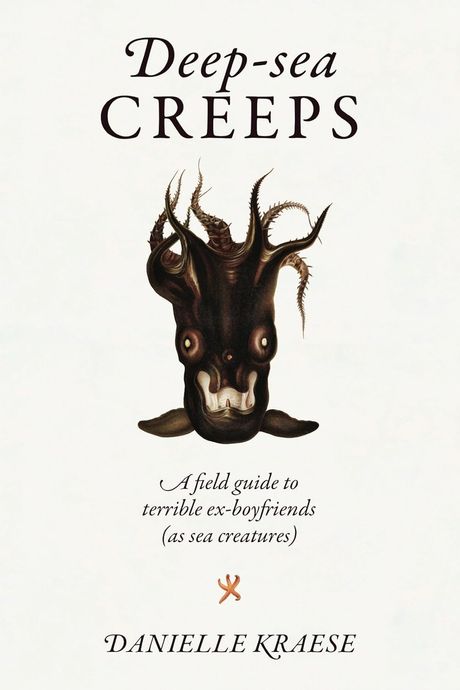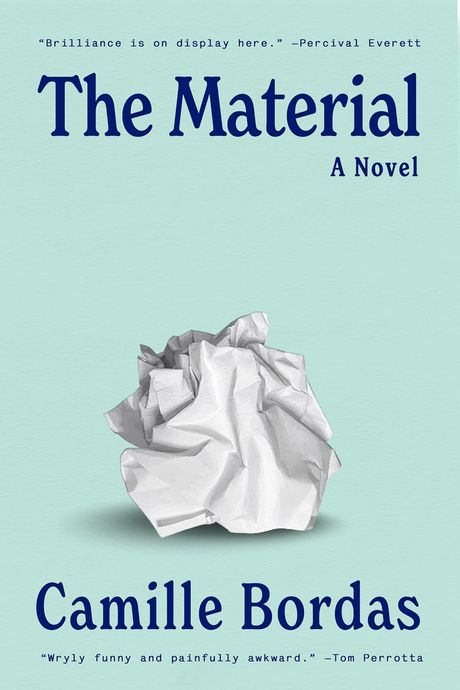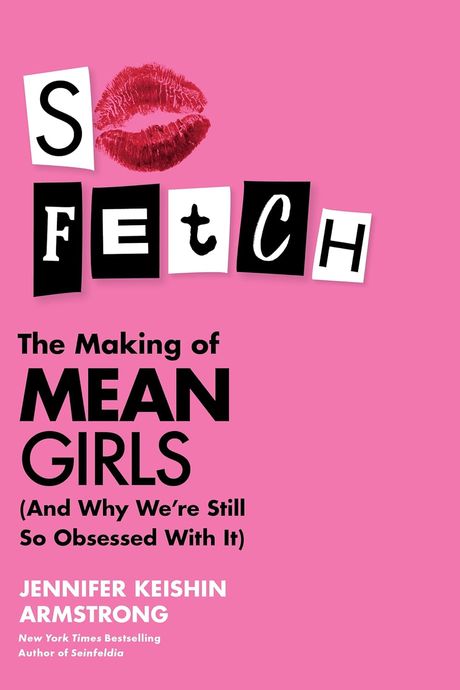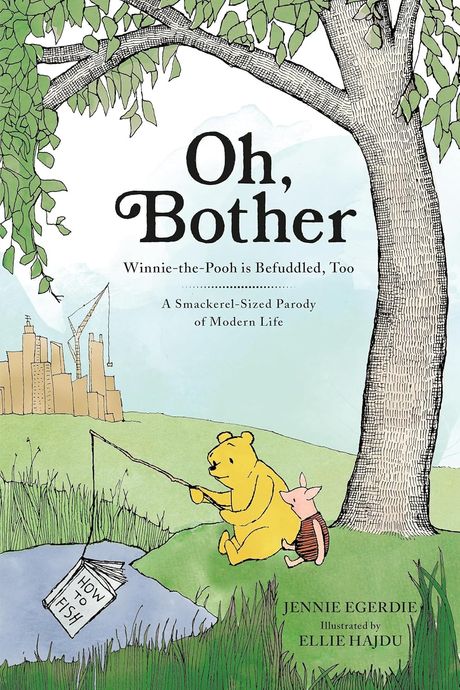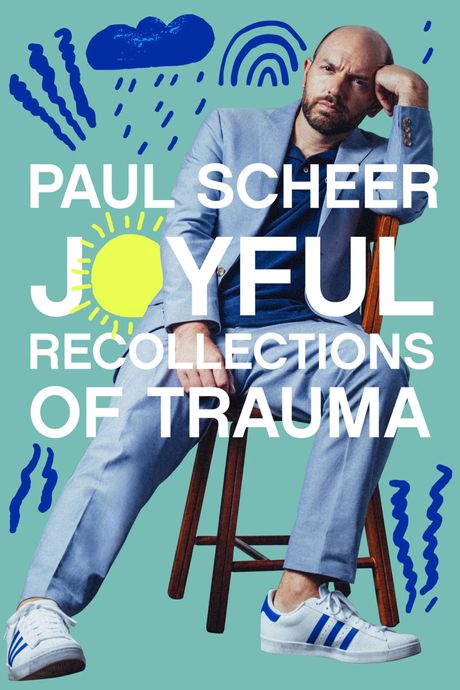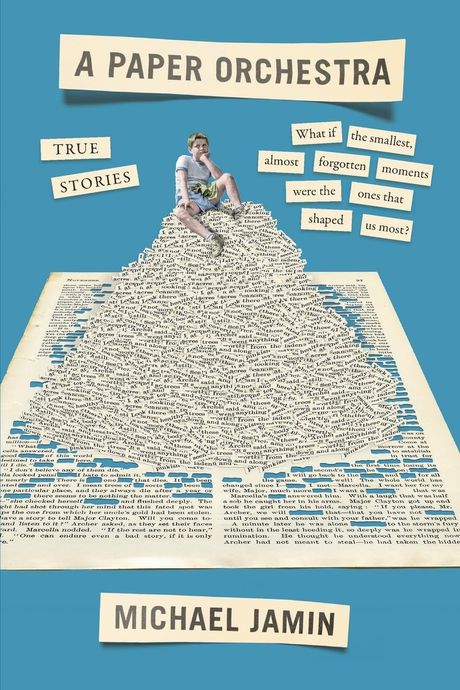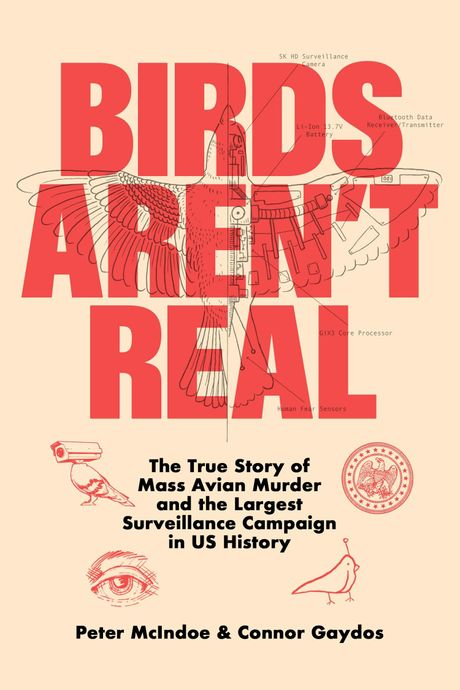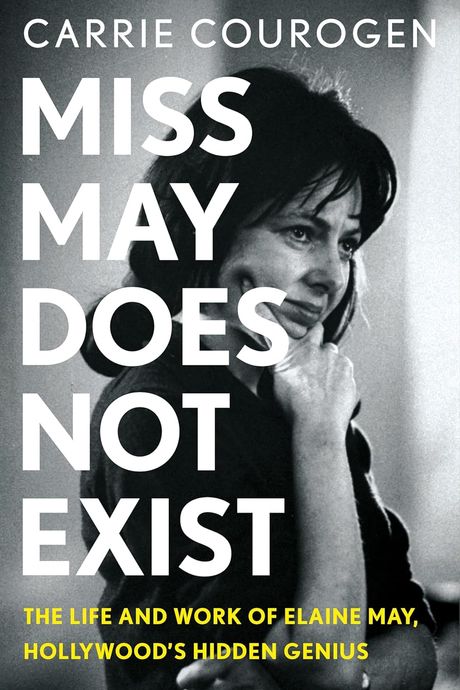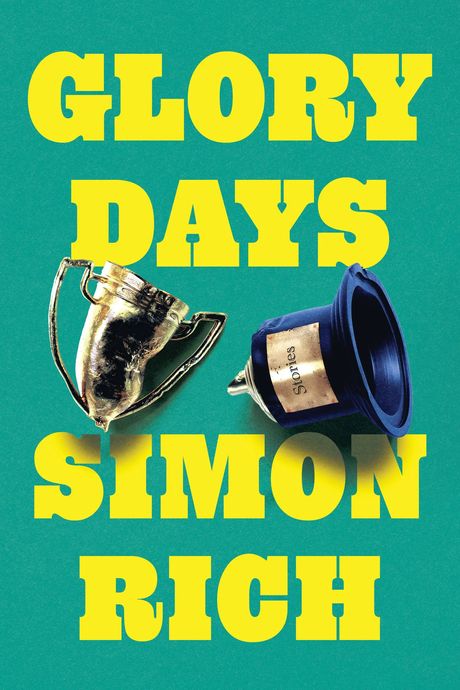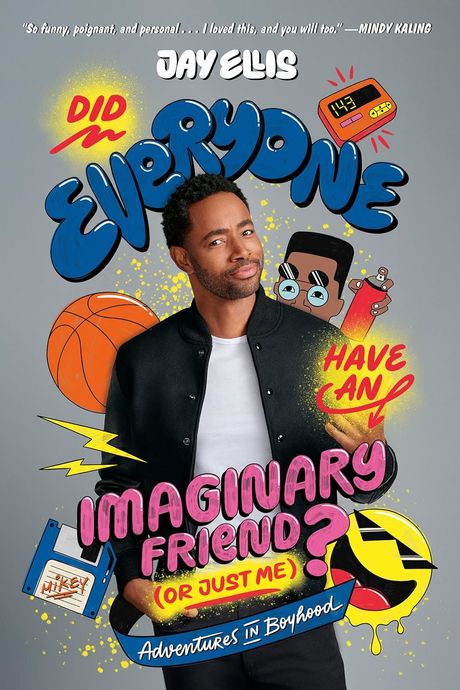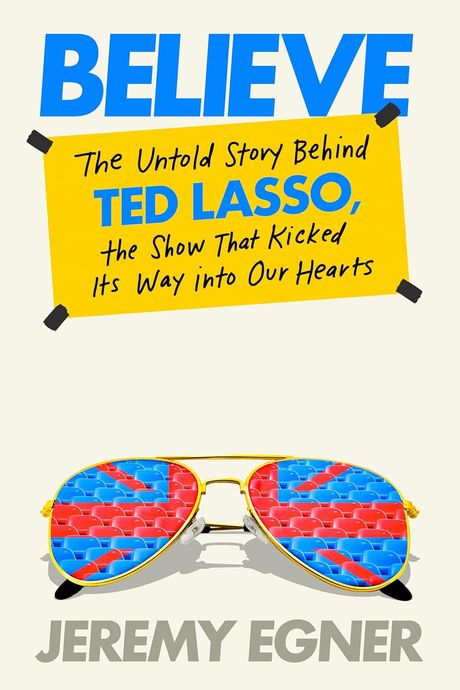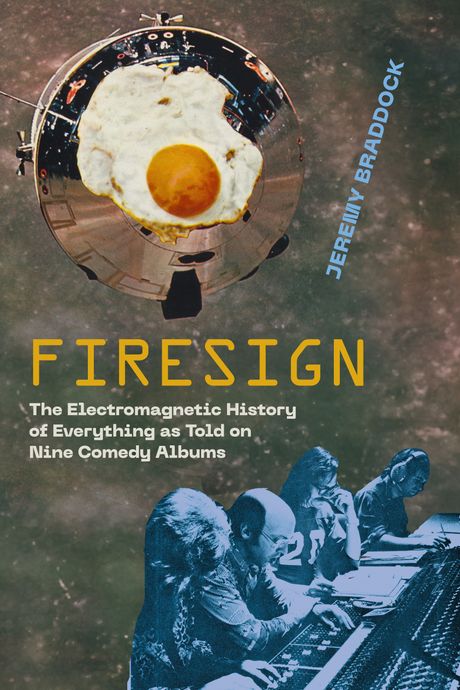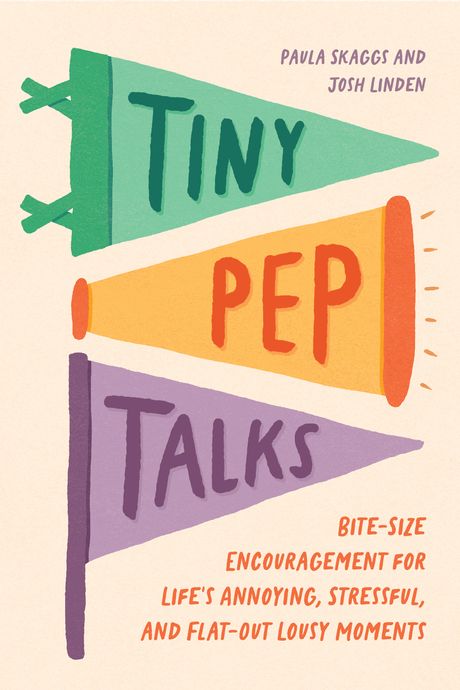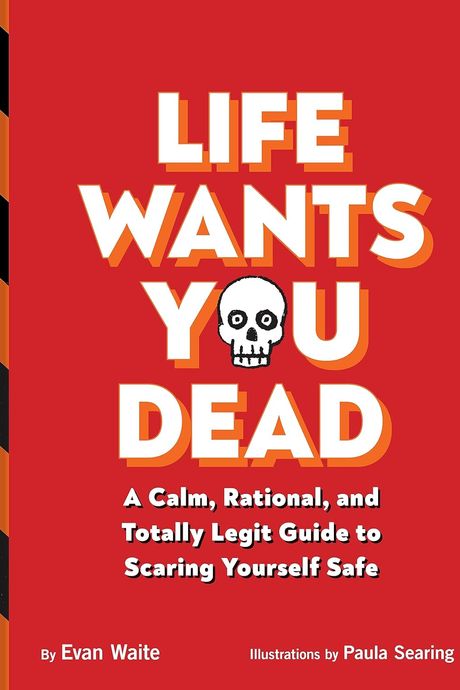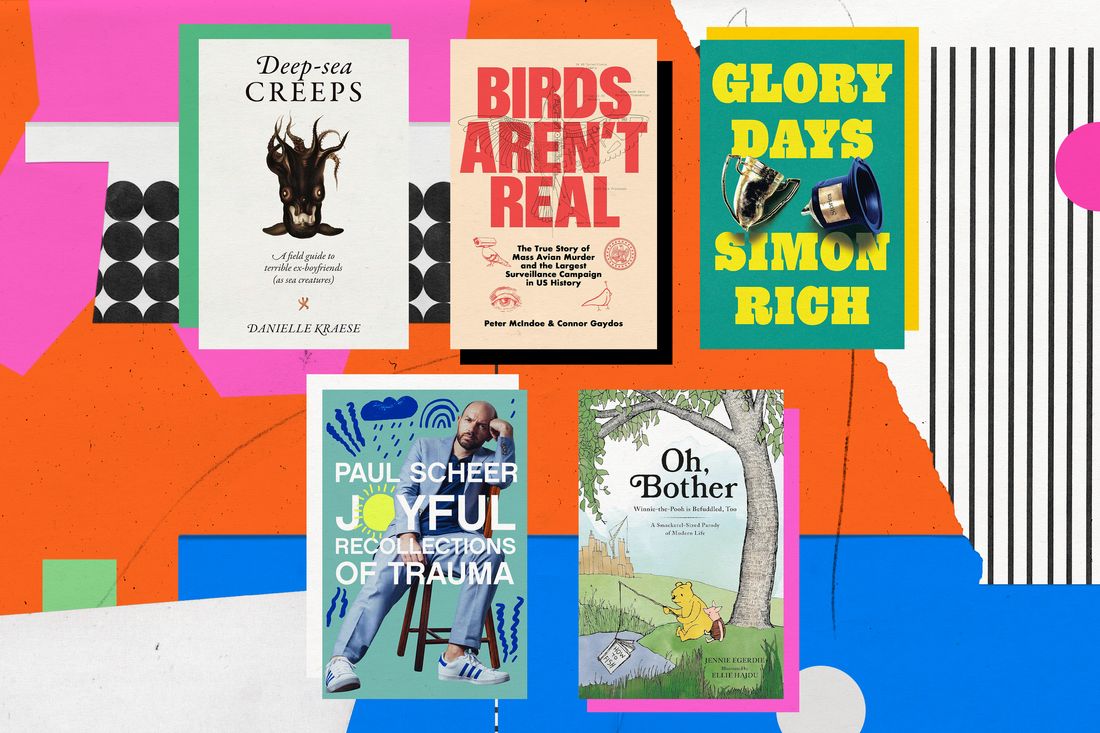
Comedy isn’t “jokes.” And it isn’t “humor,” either. Well, it is, but it’s so many more things, too. Comedy is the word to describe that amorphous, precious, sacred moment of connection between two parties in which a ridiculous but startling truth about the human experience is fully understood. That’s why we quickly expel air out of our weird little mouths when something is “funny” — on some fundamental level, we’re struck off guard by the profundity of it all.
Yes, comedy is that, but it’s also a genre, a philosophy, a process, and an industry. It’s hard to figure out what comedy is, why things are funny, or why humans need to figure out what comedy is or why things are funny, and that’s why we have books. There’s never been a better long-form tool for exploring complex ideas than these rectangular objects made of thin wood slices (or imaginary bleeps and bloops on a Kindle). Books are particularly lovely when dealing with or delivering comedy, even more so than documentary films or podcasts, which is where most of the freewheeling, deep-dive comedy content seems to reside these days.
Nevertheless, books remain the vehicle for the truly interesting, experimental, and most pointed comedy content. In 2024, many authors with something to say about why we laugh, or who just wanted to make us laugh, unleashed their creations, all of which can help us connect in what may feel like a strange and disconnected world. Here are the ten best, most delightful, thought-provoking, and just all in all funny comedy books of 2024.
10.
The Blues Brothers: An Epic Friendship, the Rise of Improv, and the Making of an American Film Classic, by Daniel de Visé
A big reason to read is to expand one’s horizons and experience something from someone else’s point of view. This book, which covers the full history of the Dan Aykroyd–John Belushi act done on record, onstage, on SNL, and in a 1980 film, helped me understand why people thought the Blues Brothers act was so damn funny. I’m not a boomer, so I never really “got” it apart from the movie, because car chases and Belushi behaving obnoxiously in a restaurant are objectively funny. But Daniel de Visé’s passionate yet academic approach helped illuminate the cultural context of the bit and how it was once actually quite disruptive and weird for guys to take a platform like comedy to celebrate the music they genuinely loved.
9.
Deep-sea Creeps: A Field Guide to Terrible Ex-Boyfriends (As Sea Creatures), by Danielle Kraese
Dating, forging romantic relationships, and even meeting people can be strange, off-putting, and surreal experiences. Deep-sea Creeps takes that notion to its absurd conclusion: It looks and reads like a richly illustrated 19th-century nature guide, supposing that male archetypes correlate to various horrific monsters of the ocean. Kraese, who co-wrote the 2022 precision-sexism satire Jokes to Offend Men, once more utilizes economy and perfectly phrased wit to take down the horrible men that stalk women as if they were krill with far less self-awareness. Men can be monsters. This book only exaggerates that a little and gets the point across with its oceanography-meets-psychology text and gorgeous design.
8.
The Material, by Camille Bordas
It’s not really an outwardly funny novel but rather one about the art, business, and philosophy of being funny. Like a messed-up Hogwarts for young adults who parlayed their terrible childhoods into sharp and witty observations, the centerpiece of this book is a school for stand-up comedians. Like a table in the back of the club surrounded by comics trying to make each other laugh or deflect attention, The Material examines what happens if those comics are subsumed by their passion and how they use comedy, a thing you can’t really teach, to cope.
7.
So Fetch: The Making of Mean Girls (And Why We’re Still So Obsessed With It), by Jennifer Keishin Armstrong
Mean Girls is 20 years old now, and they’ve already remade it, so I guess it does warrant an investigation. So Fetch, with its collection of interviews, is really more about the cultural impact of the movie and its unique and savage take on calling out high-school social-sexual politics. It was no small feat to make a teen movie with substance and a message at the height of superficial 2000s trash culture, and out of a nonfiction self-help book at that. This is all about how an idea can become something much bigger than itself.
6.
Oh, Bother: Winnie-the-Pooh Is Befuddled, Too, by Jennie Egerdie
Egerdie is so skilled at using old tropes and familiar images of childhood pop culture to say something about the unique trials and tribulations of modern life. Following up 2021’s Frog and Toad Are Doing Their Best comes Oh, Bother, which employs all the original Pooh, Piglet, and Christopher Robin images, stories, and vibes to get the reader to listen up, a veritable Trojan horse of happiness and goodness to reach out to the reader to help them feel a little less alone. It would seem that all the residents of the Hundred Acre Wood had their own stuff they were dealing with all along, just like you, contemporary citizen.
5.
Joyful Recollections of Trauma, by Paul Scheer
That striking title alone is one of the best jokes of the year and reason enough to put the book on a list like this one. The title represents what most comedian memoirs aim to be, but here’s one that tells you that right away, then manages to be unique from all the others. Scheer has been a workhorse of modern comedy with his improv background, live and TV sketch shows, and How Did This Get Made? podcast, as well as popping up on every cool comedy TV show in the last 15 years. Here, he shows why and how he got into comedy by examining in length the wild childhood he’s previously only alluded to in his other work. It’s dark, and the reader really feels for the guy, all along knowing he gets out of it okay because of the joy that awaits on the other side.
4.
A Paper Orchestra, by Michael Jamin
Jamin has written for television for nearly 30 years, for gag-oriented stuff like Tacoma FD and character-driven, empathetic projects like King of the Hill. Well versed in finding the nuance in how people behave in everyday situations, Jamin reflects on himself in his essay-thinkpiece collection that loosely coalesces into a memoir. His very funny and touching stories about his own tender childhood segue into pieces about his regrets, anxieties, and triumphs as a father. I read this book right when my son was turning 18 and graduating, and good lord, how it made me feel happy, sad, and connected all at once. A Paper Orchestra isn’t always funny, but if one defines comedy as making sense of life and getting a visceral reaction out of its reader, it’s a triumph.
3.
Birds Aren’t Real, by Peter McIndoe and Connor Gaydos
Like birds perched on a power line, this is a high-wire act, a performance-art piece in print, and an examination of the psychology that results in an ironic, tongue-in-cheek comic phenomenon. Whether you’re chronically online, actually insane, or both, you’ve heard about or believe in the “birds aren’t real” conspiracy-theory parody. Birds Aren’t Real is presented as an exposé full of “proof” that the batshit theory is true, and the authors keep it up for the entire length of a book, creating some remarkable satire of the maddeningly toxic philosophy that unfortunately frames this current age. It’s also crazy fun to just read the increasingly bizarre and hilarious ramblings of two dudes who think birds aren’t real.
2.
Miss May Does Not Exist: The Life and Work of Elaine May, Hollywood’s Hidden Genius, by Carrie Courogen
Miss May Does Not Exist is the history of 20th-century comedy that you already know but from a perspective you’ve never seen before — that of one of the underrated greats. Elaine May, half of Nichols and May, was the last of the brainy comedians, more akin to Dorothy Parker or Oscar Wilde than her mid-20th-century variety-show contemporaries. The entertainment industry was so wide open in the ’60s, ’70s, and even ’80s that a multi-talent like May could attempt a lot of different things, and it’s in that capacity that she became a framer of modern humor. Because she was a woman, and because her work was so elegant and wry, she’s significantly overlooked. Both of those theses are the crux of Miss May Does Not Exist. She helped set the tone and tropes for theatrical sketch and comedy albums, and then, as a writer-director, intelligent comedy film.
1.
Glory Days, by Simon Rich
The fictional narrative essay is the spinal column of 21st-century humor, and there’s nobody who does it better than Simon Rich. Every few years, he releases another collection of stories both made up and clearly inspired by his station in life at that time, and Glory Days is an exploration of aging by somebody who isn’t really all that old yet, chronologically or emotionally. As he lets the oblivion that we all fear wash over him, Rich weaves very funny and achingly honest stories from unlikely characters, like a middle-age Mario dealing with severe back pain and a judgmental Luigi, or his own descendant interviewing him, in the future, about his mundane life. In the end, Glory Days is about the most darkly comic premise of all: the excruciating passage of time.
Other Comedy Books We Liked This Year
Did Everyone Have an Imaginary Friend (Or Just Me)?, by Jay Ellis
Just a delightful and insightful comedian’s childhood memoir that’s more than a collection of stories delivered by an actor (Ellis is best known as Lawrence on Insecure). His work is a nostalgic embrace of ’90s pop culture by way of his adventures with his youthful, TV-inspired imaginary friend, who is hyperreal to both Ellis and the reader. It’s an accurate and highly intimate look into the mind of a ’90s child, impressively recalled, and a look at how amusing, engaging culture affects us on the deepest levels.
Believe: The Untold Story Behind Ted Lasso, the Show That Kicked Its Way Into Our Hearts, by Jeremy Egner
The most tone-setting TV comedy of the 2020s certainly deserves a book, even if it does feel a little too soon. Believe is vital in that it digs deep into the creation and execution of Ted Lasso, devoting as much ink to the development of the theme song and side characters as it does to the creators’ motivations. This book is a journalistic text on how to deliberately create solid comedy television.
Firesign: The Electromagnetic History of Everything, by Jeremy Braddock
The ’60s generation didn’t just make terrible music — they made innovative and weird comedy. Firesign Theatre, an L.A.-based artistic collective led by Peter Bergman that specialized in radio and LPs, made a string of lowbrow-meets-highbrow projects in the early ’70s that spoke to the countercultural generation’s stark differences from their parents. This book argues for Firesign’s spot in the canon of classic comedy troupes and album-makers, if only for how it also used technology creatively, brought back Surrealism, and briefly made literate comedy popular.
Tiny Pep Talks: Bite-Size Encouragement for Life’s Annoying, Stressful, and Flat-Out Lousy Moments, by Paula Skaggs and Josh Linden
Comedy can heal, and gosh, do we need this book released in November 2024 to help us do that. It’s like a book version of online therapy, conducted by two comics who aren’t afraid to be earnest. It’s nice to have a slightly corny friend tell you how great you are at conducting daily unpleasant tasks.
Life Wants You Dead, by Evan Waite
Comedy is still jokes, and it’s a way to cope with the frailties and inconsistencies of the human experience. Waite, a Family Guy writer, posits plenty of amusing observations and wild exaggerations in this breezy gift book about all the undignified, likely, and unlikely ways that one could suddenly get gotten.


